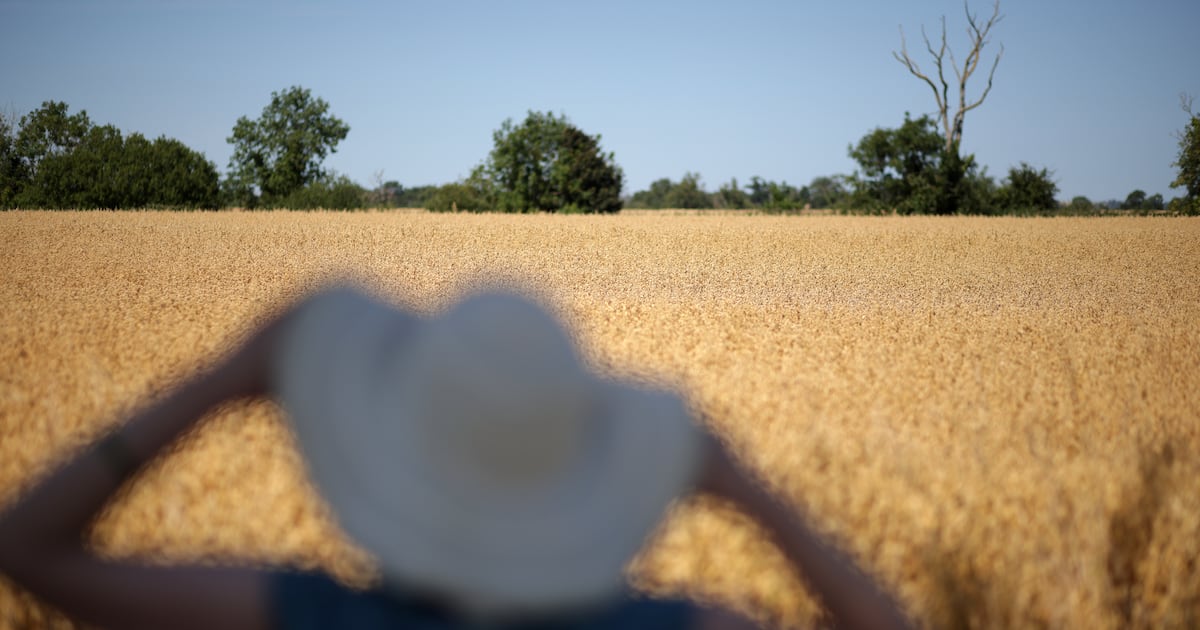Top Stories
Ireland’s 2025 Summer Shatters Temperature Records—Urgent Update

UPDATE: Ireland has just recorded its warmest summer on record, with provisional data from Met Éireann revealing an astonishing average temperature of 16.19 degrees Celsius. This figure surpasses the previous record of 16.08 degrees set in 1995, marking a significant shift in Ireland’s climate patterns.
The summer of 2025 was nearly 2 degrees Celsius above the normal average, and it is not just the summer that has seen unprecedented temperatures; the spring of 2025 also became the warmest on record. This is the first time since 1933 that consecutive seasons have broken temperature records, highlighting the urgent effects of climate change.
Met Éireann climatologist Paul Moore stated, “Ireland is experiencing the effects of climate change, and our climate projections show that our climate is going to become warmer.” The national forecaster warns that the current warming trend is expected to persist, with minimum summer temperatures anticipated to increase at a faster rate than maximum temperatures.
In a shocking revelation, all three months of summer 2025 recorded above-average temperatures. June and August ranked as the fourth warmest on record, while July placed ninth. Unlike previous record summers, the warmth of 2025 did not rely solely on extended heatwaves; shorter periods of heat combined with other atmospheric factors contributed to this record-breaking season.
Dry soils from an exceptionally warm spring allowed heat to linger longer, while a marine heatwave consistently pushed warm air toward Ireland. Furthermore, warmer nights were noted, with several weather stations reporting their highest number of warm nights ever recorded. This phenomenon was attributed to elevated sea surface temperatures around Ireland’s coasts, which created a “blanket” of warm air at night.
Met Éireann explained that the “consistency of the warmth, with heat building up quickly and lingering” played a crucial role in making summer 2025 the hottest on record. The forecaster noted an overall increase in air temperature of approximately 1.1 degrees Celsius since 1900, emphasizing the alarming impact of climate change on Ireland’s weather patterns.
The implications of this heat surge are profound. Climate change has the potential to transform previously ordinary years into record-breaking phenomena, making warm spells more pronounced against a backdrop of rising baseline temperatures. The forecaster indicated that this summer’s heatwaves, once considered pleasant, are now intensified by climate change.
Incredibly, six of the top ten warmest summers have occurred since the year 2000, underscoring a worrying trend that requires urgent attention. As these developments unfold, the effects of climate change are becoming increasingly evident in Ireland, calling for immediate action and awareness.
As we move forward, all eyes will be on how Ireland adapts to these extreme weather conditions. With climate projections indicating a continuation of this warming trend, the nation must prepare for an uncertain future marked by escalating temperatures and unpredictable weather patterns. The urgency of addressing climate change has never been clearer.
-

 Top Stories2 months ago
Top Stories2 months agoTributes Surge for 9-Year-Old Leon Briody After Cancer Battle
-

 Entertainment3 months ago
Entertainment3 months agoAimee Osbourne Joins Family for Emotional Tribute to Ozzy
-

 Politics3 months ago
Politics3 months agoDanny Healy-Rae Considers Complaint After Altercation with Garda
-

 Top Stories3 months ago
Top Stories3 months agoIreland Enjoys Summer Heat as Hurricane Erin Approaches Atlantic
-

 World4 months ago
World4 months agoHawaii Commemorates 80 Years Since Hiroshima Bombing with Ceremony
-

 Top Stories2 months ago
Top Stories2 months agoNewcastle West Woman Patricia Foley Found Safe After Urgent Search
-

 Top Stories4 months ago
Top Stories4 months agoFianna Fáil TDs Urgently Consider Maire Geoghegan-Quinn for Presidency
-

 World4 months ago
World4 months agoGaza Aid Distribution Tragedy: 20 Killed Amid Ongoing Violence
-

 World4 months ago
World4 months agoCouple Convicted of Murdering Two-Year-Old Grandson in Wales
-

 Top Stories3 months ago
Top Stories3 months agoClimbing Errigal: A Must-Do Summer Adventure in Donegal
-

 Top Stories3 months ago
Top Stories3 months agoHike Donegal’s Errigal Mountain NOW for Unforgettable Summer Views
-

 World4 months ago
World4 months agoAristocrat Constance Marten and Partner Convicted of Infant Murder









